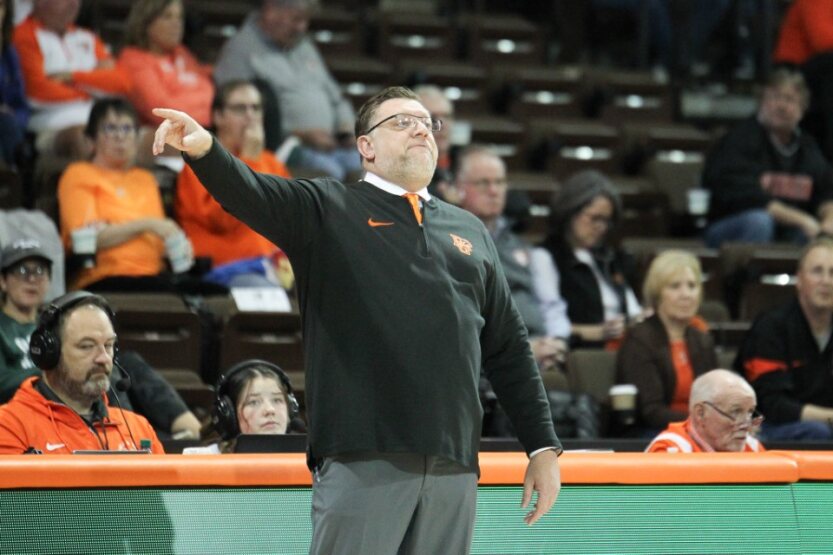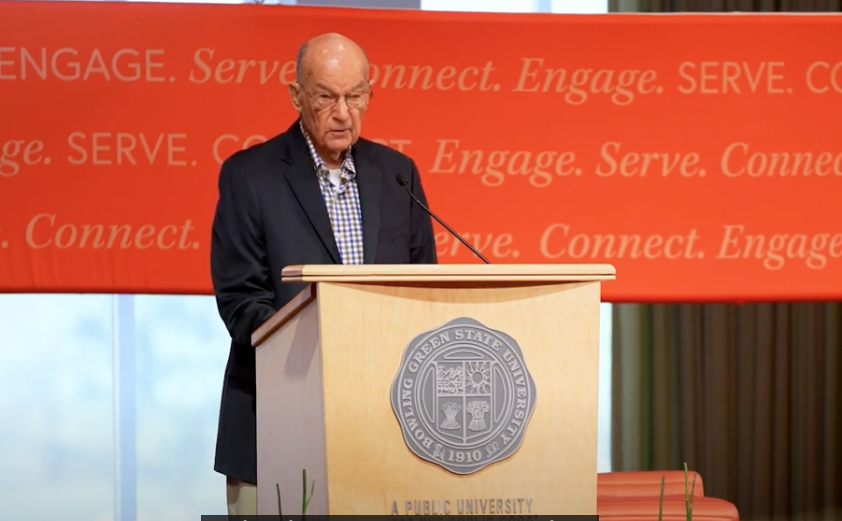When game developer Maxis released the first version of its famed Sim City in 1989 it opened a new market in educational entertainment. Developers put users in total control of a virtual city’s planning, a concept radically different from any game of its time.
Placing one fire or police station, industrial, commercial or residential zone in the wrong place can cause the whole city to fall apart.
Similarly, in the real world bad zoning also results in several problems and controversies. Zoning is the true law of the land. Every parcel of land in the city of Bowling Green has a restricted purpose or “zone,” and being unaware of a particular parcel’s designation can result in large fines, criminal charges or both.
Even though the feet of every Bowling Greenian rest upon these zones night and day, many of them – especially students – know nothing more about zoning than what can be culled from the game.
City council president B.J. Fischer said zoning is one of the issues citizens do not hear enough about, resulting in complaints over zoning decisions well after they are made.
Unlike the game, real-life zoning decisions are made by a multitude of people, including property owners, city planners, judges and city council members. Students can avoid being harmed by zoning decisions by participating in the zoning process and being more informed voters on Election Day.
The purpose of zoning land for a particular use is to protect property owners and property values.
According to Mike Tyson, president of the non-profit lobbying corporation Bowling Green Citizens for Smart Growth Inc., every zoning decision should, “follow the [master] plan, consider if it is compatible with neighboring properties, zoning, roads, fire and police protection needed and the will of the people of the community.”
Fischer, who has served on council for 14 years, believes effective zoning decisions do not always have to follow the master plan.
“The master plan is an often misunderstood thing in terms of zoning. If you think that a certain use other than the master plan makes sense, it may be OK to deviate from it,” he said.
Fischer said the biggest problem with a zoning vote is the controversy surrounding the balancing act between property owners.
“As a councilman I have always tried to balance it. On one side you have a person that wants to use his property and the other side you have the adjacent property owners,” he said, adding that denying a property owner the expected use of their land can result in controversy.
The process of zoning begins with the property owner, who turns in a rezoning request form to the city planner’s office stating exactly what type of zoning they are looking for.
There are several different types of zoning, the specifications for which are usually established by the city, but in some cases the county.
For properties the owner intends to make residential, they have several options including two types of single family housing, two types of multiple family housing, and university housing.
The issue was brought to the Undergraduate Student Government, which, through communication with the city of Bowling Green, was able to get a hold placed on the charges.
The two types of single family housing differ only with parking space specifications.
Multiple family housing is the zoning designation used for apartment complexes, such as Copper Beech Townhomes.
According to city senior planner Ken Taylor, the specifications for how many individuals can live in a multiple family zone are established by the Wood County Health Department, leaving only parking designations for the city.
“We had no say over how many people could live there. We determined the parking based on the square footage,” he said, adding that University housing zones are fairly similar.
After the application for rezoning is received from the property owner, the city planning office compares the application with the master plan and the zoning around the property, and issues a recommendation to the planning commission.
The planning commission holds a public meeting at 7:30 p.m. the first Wednesday of every month in the city administration building on 304 N. Church St., where many off-campus residents pay their utility bill.
The planning commission notes any public input on the zoning request and issues a recommendation to city council. City council has a public hearing and then votes.
The council also meets in the city building on the first and third Mondays of every month at 8 p.m.
Tyson knows all too well the importance of attending such public hearings. Citizens for Smart Growth have been attempting to have a zoning decision they overlooked at the beginning of the summer reversed.
The decision zoned a 26 acre area east of the Meijer store multiple family for use as a 264-unit apartment complex. The problem is, according to Tyson, the area was slated for commercial use in the city’s master plan.
“We were shocked to learn that the city did not follow the master plan, as we had a lot of confidence and we did not feel that we had to monitor every meeting and vote. We paid for a master plan, let’s use it,” he said.
Tyson added that no fire, police or EMS study had been done to ensure the proposed tenants’ safety. The group also has concerns over traffic, public transportation, the complex’s proximity to dangerous industrial processes, and other possible economic detriments.
Following the decision, Citizens for Smart Growth organized a petition in order to get the zoning decision placed on the upcoming Nov. 8 ballot as a referendum.
After the referendum’s position on the ballot was approved, land owners Nancy Rankin of Portage and Paul S. Rankin of Bowling Green brought the issue to court, citing errors made by the city’s finance director.
Judge Reeve Kelsey of Wood County Common Pleas Court subsequently ruled that the referendum should be placed on the ballot, and the issue has now been appealed to Ohio’s 6th District Court of Appeals.
‘#160;


















